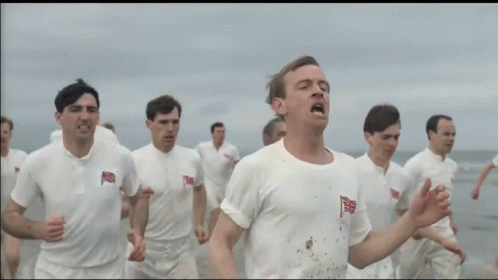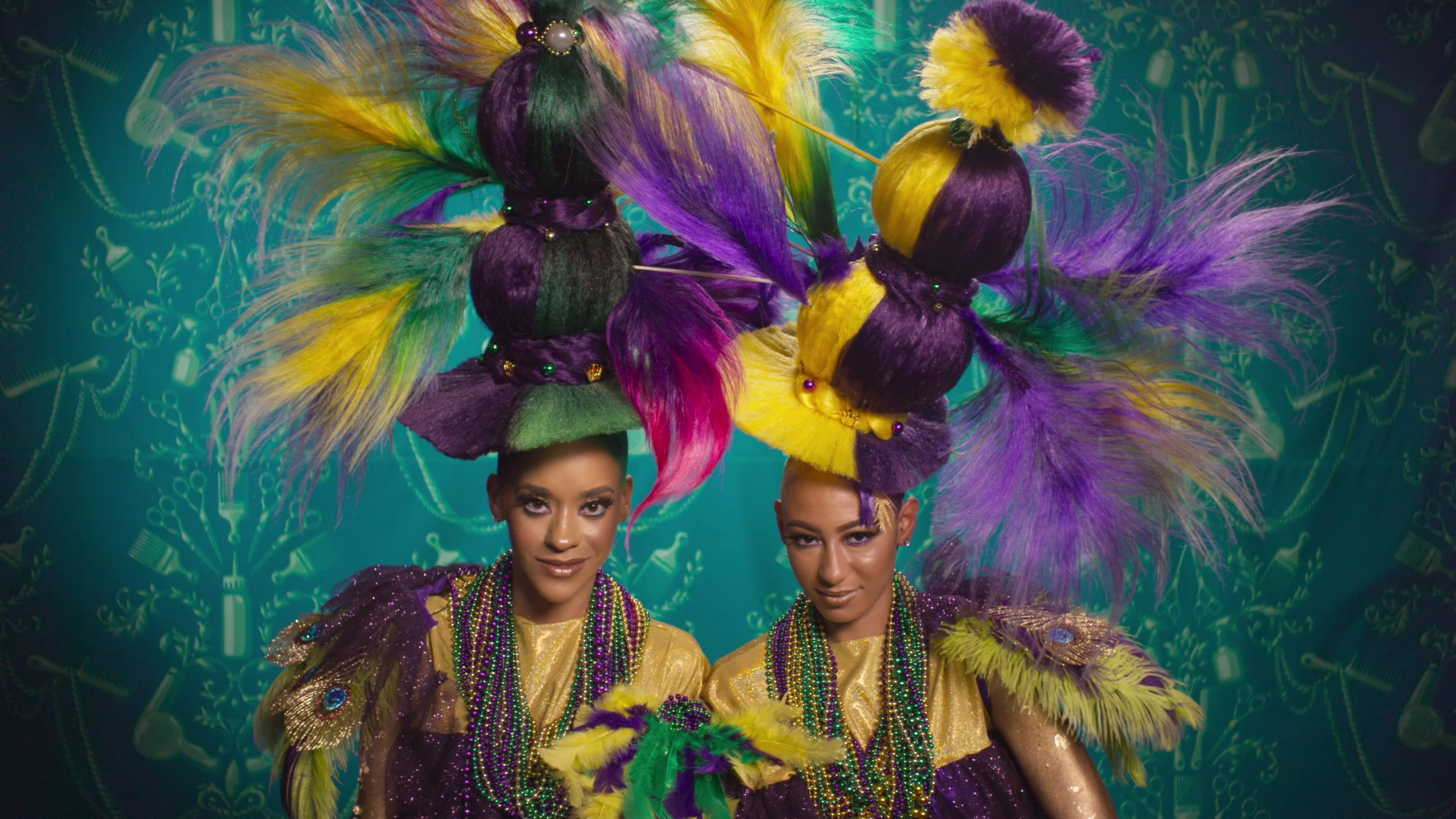By The Landlord
“You came to see a race today. To see someone win. It happened to be me. But I want you to do more than just watch a race. I want you to take part in it …” – Eric Liddell, Chariots of Fire, 1981
“Life is a kind of Chess, with struggle, competition, good and ill events.” – Benjamin Franklin
“Cowards die many times before their deaths;
The valiant never taste of death but once.” – William Shakespeare, Julius Caesar
“I will not cease from mental fight
Nor shall my sword sleep in my hand.” – William Blake
“Competition is the law of the jungle, but cooperation is the law of civilization.” – Peter Kropotkin
“The only winner in the War of 1812 was Tchaikovsky.” – Solomon Short
“I'm in competition with myself and I'm losing.” – Roger Waters
It's instilled in all of us, to a greater or lesser extent, through a mixture of nature and nurture. From school egg-and-spoon races to spelling bees, jumpers for goalposts, from the grandest sporting occasions to the most obscure, across all ages and styles, in all parts of life, it is expressed as a will to win. Erudite crossword contestants to fierce knuckle fighters, pea-rolling to a Grand Prix, chess to cheese-rolling, tiddlywinks to triathlon, golf-putting to gladiators of Ancient Rome, the cut and thrust of recalled knowledge in TV quiz shows to the life-and-death real or fictionalised films – Rollerball to History Lesson, Hunger Games to Squid Game. In business to military battles, politics and finding partners, everything in life cycles to crazy bicycles, ape fighting ape, or giant vegetable contests at the village fete, so much of our culture seems to be about the instinct to compete.
So this week it's time to start our next cultural race, perhaps one here that's more about taking part than winning, as the starting pistol goes for songs about this topic. In theory, on the basis that we might be driven to compete in life, that means songs about everything, but of course that's not really going to apply - focus is about competitions and competing itself, from self-motivation to rivalry, the drive to gain advantage and win or not lose, the emotions and psychology of it all, all sights, sounds and feelings captured in lyrics and musical melody, style, pace and rhythm.
It's tempting to just go for more common events of competition, but there's also much joy to be had in lyrics that touch on the lesser known ways people inventively compete. Battles of bands might indeed come up as musicians seek to outshine each other. And there are many weird and wonderful and silliest ways others seek to win. Worm-charming, anyone, where each competitor is 3 x 3 metre plot of earth, and have to charm as many worms out of it as possible over a set period? Or maybe you have a secret talent and drive for barrel-rolling, bog-snorkelling, pooh-sticks, conkers, coal-carrying, stone-skimming, or perhaps we're looking at gurning, or staring challenges? Maybe it could be a solution in a current conflict?
Here then are a few more examples, as profiled in the mini-documentary series, which includes Gloucester's famous cheese-rolling downhill event, plus frog-jumping, chili eating, yo-yo-ing, the extraordinary creations of fantasy hairstyling, and dog dancing.
Talking of dogs, which is really all about their owners, who cannot but howl with joy the wonderful Crufts-style parody, Best In Show?
Competition inspires a mixture of emotions. Modern life seems to require it, just as the animal kingdom plays it out for survival, and in many walks of human life it is seen as a motivator. Janet Jackson, for example, who grew up in a deeply competitive family surrounded by her siblings, and with extremely overbearing parents, has dropped into the Bar to tell us that: "I kinda see everyone as competition. I'm a very competitive person. But I think that's good. Competition is great. And as long as it's friendly and not a malicious thing, then I think it's cool.”
And T Bone Burnett is also here to sum up, with mixed feelings, about how his, and related creative industries work: "Everything around a writer, or musician in the record business, probably everything in all the United States or in all of western civilization, is about competition."
But others question the use of competitiveness in an apparent dog-eat-dog, kill-or-be-killed world. Here's Dale Carnegie inverting the subject: “The world is so full of people who are grabbing and self-seeking. So the rare individual who unselfishly tries to serve others has an enormous advantage. He has little competition.”
Hair-raising Royal Aquarium Ladies Bike Racing, 1896
Hair-raising fantasy hairstyling competition, 2020
Meanwhile, alternative French film-maker Michel Gondry feels very uncomfortable with the whole idea: “I don't like the idea of competition – maybe because I kept losing them when I was a kid. Maybe it's better to be the one who loses?”
Perhaps then there's a distinction between healthy and harmful competitiveness that can even backfire on yourself. The American poet and writer Carl Sandburg fires out this remark: “The squeaky wheel gets the grease but the quacking duck gets shot.”
And here's another Carl, the great astronomer Carl Sagan, who takes a wider view on the tension between competition and cooperation:
“What began in deadly competition has helped us to see that global cooperation is the essential precondition for our survival."
We compete for attention from the day we're born, but on a larger social scale it is the world of business where this happens most viciously. Yet is business, and the wider economy, always healthy when in a culture of competition?
Gathering in the Bar are figures of very different backgrounds somehow coming to similar conclusions on this. George Soros warns of certain economic dangers: "Unrestrained competition can drive people into actions that they would otherwise regret.”
Only in this Bar can George Soros be sitting having a pint alongside Karl Marx: "The more the division of labour and the application of machinery extend, the more does competition extend among the workers, the more do their wages shrink together,” adds the bearded one.
Throwing in more collateral into this argument is Edward Bond: “Instead of us being a community, everybody is asked to seek their own personal ends. It's called competition. And competition is antagonism."
So instead of competing, shouldn’t we cooperate more? Not if the motives are wrong, and inverting the idea even more, joining the others is Robert Kennedy, warning of the dangers of the wrong kind of cooperation: “When companies get together secretly to fix prices and attempt to eliminate competition, honest businessmen suffer. I think this is wrong.”
But surely Olympic Games is seen as the healthiest expression of the competitive spirit? Competition is part of the laws of the jungle, and Tarzan himself thinks so. Here's five times Olympic Swimming champion and famous Tarzan, Johnny Weissmuller: “I have long believed that athletic competition among people and nations should replace violence and wars.” Meanwhile in Squid Game, death is part of the competitive entertainment, with a twist:
If only then, all the world's wars could be solved with an arm wrestle or a game of draughts. But what about the spirit of the Games themselves? China's revered, but self-exiled artist, Ai Weiwei, helped conceive Beijing's famous 'Bird's Nest' National Stadium, the centrepiece of the 2008 Games. He says: “It is designed to embody the Olympic spirit of 'fair competition.' It tells people that freedom is possible but needs fairness, courage and strength.”
Ai Weiwei and the symbolic Beijing Bird’s Nest
And yet his view of the Olympic Games is more nuanced, and here he brings together sport and business under the same roof: “The Olympic Games are highly commercialised. They purport to follow the traditions of an ancient athletics competition, but today it is the commercial aspect that is most apparent. I have seen how, through sport, cities and corporations compete against each other for financial gain.”
So then, competition can run both ways. But let's end with a final race, and a look back at the London Games of 2012, and the Opening Ceremony. In this sequence, featuring the London Symphony Orchestra conducted by Sir Simon Rattle, Rowan Atkinson plays his most commercially successful character having a competitive fantasy. What can possibly go wrong?
So then, it's time to go ahead and nominate your songs on this subject. Giving you more than a sporting chance, and judging all performances with a keen ear is one of top referees, Uncleben! The games close at 11pm on Monday UK time, for playlists published next week. Ready, steady ...
New to comment? It is quick and easy. You just need to login to Disqus once. All is explained in About/FAQs ...
Fancy a turn behind the pumps at The Song Bar? Care to choose a playlist from songs nominated and write something about it? Then feel free to contact The Song Bar here, or try the usual email address. Also please follow us social media: Song Bar Twitter, Song Bar Facebook. Song Bar YouTube, and Song Bar Instagram. Please subscribe, follow and share.
Song Bar is non-profit and is simply about sharing great music. We don’t do clickbait or advertisements. Please make any donation to help keep the Bar running:




